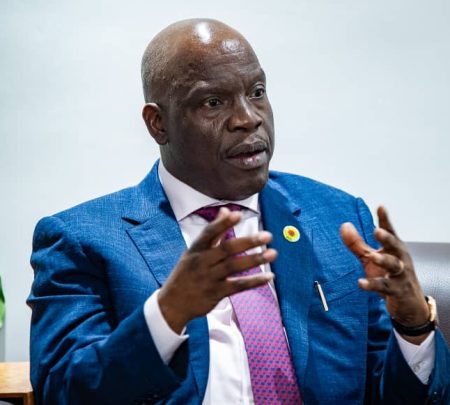
Ike Amos
29 March 2017, Sweetcrude, Abuja — The Minister of State for Petroleum Resources, Mr. Emmanuel Kachikwu has declared that the Federal Government had stepped up efforts to attract more investments into the oil and gas industry despite the volatility and uncertainty in the global petroleum industry.
In his presentation titled, “Oil Resource Management and Implications on National Security and Economic Survival,’ Kachikwu stated that substantial efforts are been made at ensuring a conducive investment climate in the oil and gas industry that would help attract more investments, ensure its growth and enhance the capacity to generate employment opportunities in the sector and nationwide.
He said, “From June 2014, global oil prices have been sliding to levels last seen during the peak of the financial crisis in 2008 resulting from a weak global economy, strong Dollar as well as glut in the oil market.
“Most analysts agree that as oil producers, we should brace up for extended periods of lower prices and increased price volatility. The resultant effect is that companies are slashing capital spending in 2016 as a response to this dramatic collapse in oil prices.”
Kachikwu noted that the focus of the Federal Government had since shifted towards enabling policies and initiatives that would jump-start an accelerated pace of development in the country.
He further stated that Nigeria’s crude oil production had risen to 2.2 million barrels per day, from about 1.9 million as at February 2017 due to the Federal Government’s concerted effort on security and improved relationship with host communities.
Giving a breakdown of the crude oil output, he stated that current production comes from Joint Ventures (JVs) with International Oil Companies (IOCs) which accounted for about 46 percent of production; Production Sharing Contracts (PSCs) accounted for about 42 percent of production while Independents and Marginal field operators accounted for about 12 percent.
Kachikwu added that over the years, Nigeria had witnessed some asset transfer transactions largely from Shell, Total and ENI, a development that had seen the emergence of new largely indigenous-led independent companies.
“This demonstrates a maturing oil and gas sector in which bigger players are re-aligning their asset portfolios, while new non-major players are taking over control of operations and management,” he stated.
Kachikwu, however, disclosed that inefficient Joint Venture Cash Call Management system resulting in underfunding of Government equity interest and huge unpaid Cash Call Arrears, estimated by the industry at over $5 billion, remains an issue.
This, he stated, was in addition to low government revenues from Deepwater Production Sharing Contract (PSC) production due to Government inability to effect review of commercial terms since the commencement of production from Bonga Oil field in 2005 when oil price exceeded the $20 per barrel review threshold.
Furthermore, he stated that the Federal Government’s targets for the sector in the next three years include, “Improving the capacity of oil and gas regulatory institutions and creating a commercially viable National Oil Company incorporated under Companies and Allied Matters Act (CAMA) subject to same terms and conditions as any private company paying taxes to government and dividends to shareholders.
“Establish stable, simple to administer and competitive Oil and Gas fiscal framework that encourages continuous investments by global industry players and delivers optimum royalties and taxes to Government.
“Drastically reduce corruption, enhance transparency and accountability in the operations and management of the oil and gas sector to ensure public disclosure of all commercial transactions and entrench competitive and transparent system for sale of Nigerian crude oil and award of oil blocks.”



